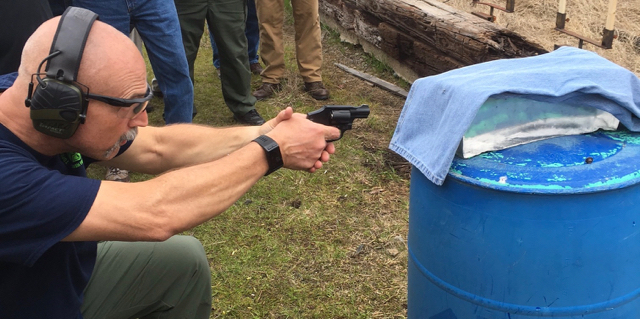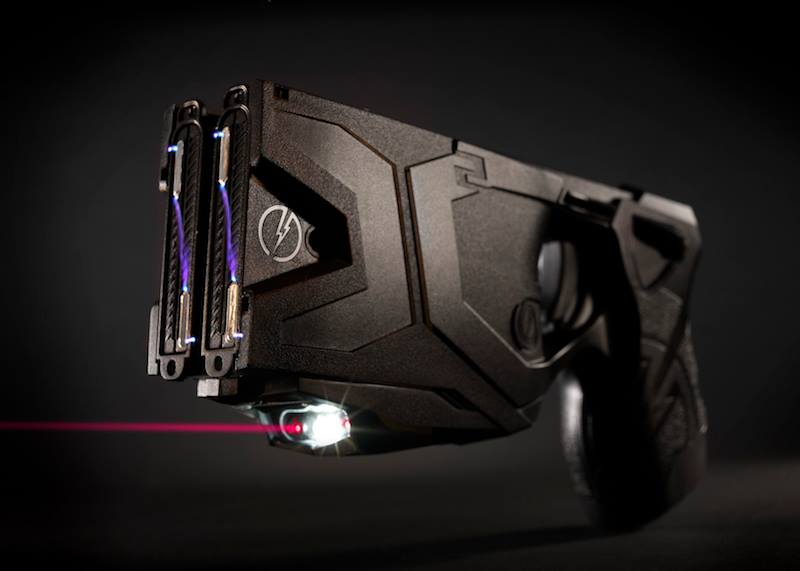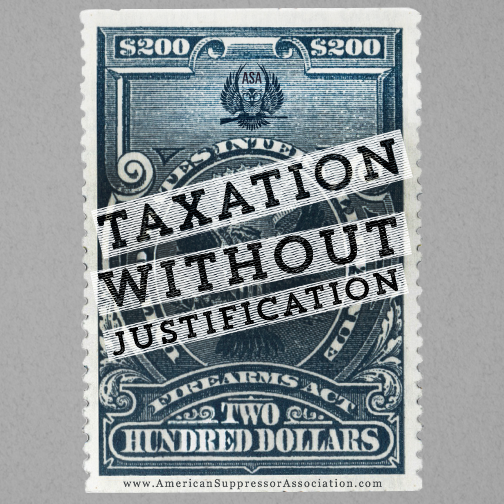 Arsenal Attorneys: A National Firm - Offices in Virginia and California
Arsenal Attorneys: A National Firm - Offices in Virginia and California
Arsenal Attorneys: A National Firm - Offices in Virginia and California
Arsenal Attorneys: A National Firm - Offices in Virginia and California
CONTACT US TODAY
800.819.0608

Arsenal Attorneys
Arsenal Attorneys is a nationwide law practice with offices in Fairfax, Virginia near Washington, DC and in Rocklin, California near Sacramento. We serve large and small clients, often remotely. Depending on the client's location, our services include estate planning, civil litigation, criminal defense, business law, landlord-tenant disputes, real estate, and firearms regulations. Our team of attorneys is licensed to serve clients in over 30 states. Contact us today to discuss your goals.
Video: Journalist Emily Miller and Arsenal Attorneys' George Lyon Discuss DC Carry License Applications and Renewals
See below video of Arsenal Attorneys' George Lyon and journalist Emily Miller discussing the challenges of obtaining and renewing a District of Columbia Concealed Carry Pistol License. George provided Emily the required 4+ hours of classroom training and 2+ hours of shooting instruction at the range. This discussion took place at the range at the headquarters of the National Rifle Association in Fairfax, Virginia.
Emily wrote about the arduous process of becoming a gun owner in Washington, DC in her book 'Emily Gets Her Gun.' Later she was one of the first people to obtain a DC carry permit. Arsenal Attorneys' George Lyon is a long time Second Amendment litigant in landmark court decisions, including the US Supreme Court's decision in Heller and the more recent Palmer case which compelled DC to issue carry permits to residents and non-residents, albeit with extremely difficult requirements.
Contact Arsenal Attorneys for help with carry permits and other firearms-related legal matters concerning gun owners and the firearms industry. Our firm also provides legal services in business law, estate planning, criminal defense, civil litigation, administrative law, Second Amendment, law, and more.
Arsenal Attorneys' George Lyon Reviews the Rangemaster 2017 Tactical Conference
Arsenal Attorneys’ George Lyon attended the Rangemaster Tactical Conference March 17-19 in Little Rock, Arkansas. Here’s his after action report.
 This was my second time attending the conference. Last year I attended in Memphis, Tennessee at the Memphis Police Academy, an excellent venue. This year’s event was at the Direct Action Resource Center, called DARC For short and pronounced ‘Dar-C’, a premier training site for tactical specialists – surrounded by Arkansas swamp – with a shoot house, a Russian chopper situated on a tower for fast roping, an airliner body, sans wings, for hijack scenarios, and a variety of ranges ringing the facility. The facility is best known for its anti-terrorism class, open only to military and law enforcement personnel.
This was my second time attending the conference. Last year I attended in Memphis, Tennessee at the Memphis Police Academy, an excellent venue. This year’s event was at the Direct Action Resource Center, called DARC For short and pronounced ‘Dar-C’, a premier training site for tactical specialists – surrounded by Arkansas swamp – with a shoot house, a Russian chopper situated on a tower for fast roping, an airliner body, sans wings, for hijack scenarios, and a variety of ranges ringing the facility. The facility is best known for its anti-terrorism class, open only to military and law enforcement personnel.
The Rangemaster event, previously known as the “polite society” conference included some of the better known firearm and self-defense instructors in the country, including Massad Ayoob, John Farnam, Marty Hayes, Craig Douglas, Greg Ellifritz, our friend John Murphy from FPF Training, and of course Tom Givens of Rangemaster. A good deal of the conference was devoted to legal issues with Manny Kapelsohn speaking on lessons learned from previous self-defense shooting cases, Skip Gochenour speaking on the role of provocation in defeating a self-defense claim, and Andrew Branca distilling his excellent four-hour class on the law of self-defense into two hours. Mas and Marty spoke on the potential role of a firearms instructor as an expert witness, the class I most anticipated.
In addition to the speakers’ presentations, the ranges were in use all three days, with one devoted to a shooting competition and others devoted to a variety of classes taught by among others John Hearne, Chuck Haggard, and Tom and Lynn Givens. There were also classes on combatives, tactical medicine, and a variety of lectures.
Some of the highlights of the conference for me were Tom Given’s lectures on “Active Killers” and “Defining the Threat” as well as two tactical scenarios. In this blog, I will address Tom’s lectures. In a subsequent blog, I’ll share the learning points from the two tactical scenarios.
Average active killer incident ended by police: 14.29 deaths. Average incident ended by armed citizens: 2.33 deaths.
In both of his lectures Tom stressed a crucial point for survival: carry a gun. He went through a litany of active killer events emphasizing that in each case the killer’s goal was inflicting the highest number of casualties and in each of those events, each of the dead victims had been unarmed. In the vast majority of those cases when confronted with armed resistance the killer either committed suicide or simply gave up. When active killer incidents are ended by police response, an average of 14.29 persons are killed. When active killer incidents are ended by armed citizen response, an average of 2.33 persons are killed. What does that tell you that you need at an active killing event? Tom says it’s clear. “Carry a gun,” he said.
Tom’s lecture on “Knowing the Threat” had a similar theme. The odds say that one in 30 adults will be a victim of violent crime in any particular year. That statistically resolves to a 1 in 4 chance of being a victim of violent crime in one’s lifetime. Women have a 1 in 60 chance of being raped in any one year. Ten percent of violent events happen at home; 90 percent happen someplace else. If you had a 1 in 30 chance of your house catching fire in any one year, would you have fire insurance, a fire extinguisher, a plan for how you would handle a fire? Do you think you need a plan for handling a violent confrontation both inside and outside the home? Do you think that might involve having a gun available at every possible moment? Again, Tom’s advice is to carry your gun.
Interestingly, Tom addressed statistics suggesting a drop in crime. He acknowledged that the murder rate is down, but explained that is a function of advanced trauma care. When you don’t die, the police don’t call it attempted murder, they call it aggravated assault. The result of an aggravated assault can leave you blind, substantially incapacitated, paralyzed, bankrupt from medical expenses, etc. Admittedly, better than dead, but maybe not so much. Just “carry your gun,” Tom repeated.
Finally, Tom discussed the experience of persons who had taken Rangemaster’s training. There have been 66 known gun fights involving Tom’s students over the years. Sixty of these students have escaped without injury, three had injuries, and three were forfeits. What did he mean by forfeit? They were murdered by an armed robber while they were unarmed. In Tom’s words, the lesson should be clear. “Carry your gun.”
Like George Lyon, Arsenal Attorneys™ team includes lawyers who are certified firearms instructors, federal firearms licensees, former law enforcement, and criminal defense attorneys, particularly for self-defense cases. Our attorneys are available for personal consultations in self-defense law for gun owners, which we offer at our offices or by phone or video conference nationwide. The firm also offers legal services in business law, estate planning, civil litigation, personal injury and other areas of law.
Media Coverage of Arsenal Attorneys 2nd Amendment Litigation Challenging Maryland Taser Bans
Here is media coverage of our successful Second Amendment challenge to Taser/stun gun bans in Maryland. From the Baltimore Sun:
Baltimore, Howard County act on electronic weapons ban in face of lawsuit.
Chief Judge Catherine C. Blake of the U.S. District Court in Maryland signed an order temporarily halting part of a federal lawsuit that challenges bans on the electronic weapons in Baltimore City and Baltimore and Howard counties, pending action by the city.
Six local residents — including Leah Elizabeth Baran of Howard County and Douglas W. Hansen of Baltimore — sued local officials in late January over their right to own and carry the weapons.
Mayor Catherine Pugh said the city and plaintiffs "have agreed to wait up to 90 days to allow for potential legislative action by the City which would remove the need to move forward with the lawsuit."
Howard County lawmakers lifted a similar ban Tuesday in response to the lawsuit. Both jurisdictions, along with Baltimore County, have had longstanding restrictions on the use the stun guns, which the plaintiffs argued are necessary for self-defense as an alternative to lethal force.
Their argument is bolstered by a U.S. Supreme Court decision in March 2016 that questioned the constitutionality of stun gun bans and suggested that Second Amendment protections applied to electronic weapons. The decision did not declare stun gun bans wholly unconstitutional; instead, the court rejected the arguments of a Massachusetts court for upholding the ban.
Anne Arundel County — the first county to ban stun guns in the state — lifted its restriction in 2013.
Some warn that the stun guns can be deadly if used by untrained people. The devices use compressed nitrogen to fire two small probes attached to conducting wires. Once in contact with a person's body, the device transfers enough voltage stop the target's motor functions and inhibit muscle control without causing injury.
The effects become more pronounced the longer the device is used: A half-second jolt is startling, while a second or two can leave a person dazed. Longer than that leads to loss of balance and muscle control.
Baran and the other plaintiffs argued that unlike weapons such as batons or knives, Tasers allow individuals to apprehend an attacker at proximity.
Baran wants to be able to use a stun gun because a former boyfriend who was sentenced to prison for 30 years for sexual assault in 2014 threatened to harm her after he was released.
"When he says he's going to do something, he's going to do it," Baran said. "Going to jail won't change that."
Baran is trained to use firearms and has a handgun qualification license from the Maryland State Police, but she argues a stun gun is a less lethal defense option.
The company she tried to buy a stun gun from, Taser International, won't ship one to her house because she lives in Howard County, according to the lawsuit.
Hansen, who lives in Baltimore's Remington neighborhood, also has been trained in firearms, according to the lawsuit. He is "ready, willing and able to use deadly force to defend himself and his home" but worries about the consequences, including psychological ramification and the potential to be taken into police custody and prosecuted.
George L. Lyon Jr., a lead attorney on the lawsuit, said the case aims to restore local residents' right to "an effective self-defense tool." His firm, Arsenal Attorneys, represents gun owners and the firearms industry and challenged the stun gun ban in Washington, which officials there moved to repeal last fall.
Lyon called Howard's action "long overdue" and said he hopes Baltimore officials will "take the next step and outright repeal the ban that's been in place."
"There are circumstances when deadly force might not be appropriate," Lyon said. The plaintiffs "see this as giving them another potential tool to use."
A motion was filed to dismiss the case against Howard County, following repeal there. The litigation involving Baltimore County is ongoing, Lyon said.
The laws in Baltimore and Howard County were misdemeanors that carried fines of $500 and $1,000, respectively
Arsenal Attorneys Negotiate End of Taser/Stun Gun Ban in City of Baltimore
 Arsenal Attorneys and the City of Baltimore Maryland have negotiated an end to the City’s ban on Tasers and stun guns.
Arsenal Attorneys and the City of Baltimore Maryland have negotiated an end to the City’s ban on Tasers and stun guns.
In January Arsenal Attorneys sued Baltimore City and two Maryland counties over their bans on owning and using Tasers and stun guns for self-defense.
Lead plaintiff in the case is Leah Elizabeth Baran, a domestic abuse survivor who lives in Howard County, Maryland. Five other Maryland residents joined in the suit to overturn the electronic weapons bans.
Earlier this week the Howard County Council in response to Ms. Baran’s lawsuit, voted to repeal its ban on electronic weapons.
The agreement with the City of Baltimore, filed in federal court on February 23, 2017, provides that the City will not enforce its Taser/stun gun ban against the lawsuit plaintiffs. It further provides that the City will not enforce its ban against other law abiding citizens. Persons with serious mental illnesses with a history of involuntary commitment to mental institutions or with a history of violence will continue to be prohibited from possessing electronic weapons. The stipulated agreement also provides that electronic weapons will be prohibited in schools and government building.
As part of the agreed stipulation, Baltimore City also agreed to pay Arsenal’s costs and attorneys’ fees in bringing the suit against the City.
“This is a great victory for both the Second Amendment and the right of Baltimore residents to protect themselves, “ said Arsenal Attorneys’ George Lyon, who served as lead counsel in the case.
Last Summer Arsenal Attorneys sued the District of Columbia over its electronic weapons ban. In December, the District’s City Council voted to repeal its Taser/stun gun ban. That repeal provision awaits a mandatory Congressional review period and is expected to become effective by early May.
Arsenal Attorneys serve gun owners, firearms and ammunition manufacturers, retailers, and instructors in over 40 states. From its main office in Arlington, Virginia, Arsenal Attorneys is a full service law firm for clients in the metropolitan Washington, DC area, Northern Virginia, and Maryland. The firm’s practice areas include: Firearms law, business law, estate planning, LLCs, criminal defense, civil litigation, personal injury, landlord-tenant disputes, and more.
Arsenal Attorneys Files Suit Against Taser Bans in Baltimore City, Baltimore County and Howard County
Arsenal Attorneys on behalf of six Maryland citizens is suing Howard County, Baltimore County and Baltimore City in federal district court over their bans on Tasers and stun guns. The three Maryland localities prohibit their residents and visitors from possessing and using non-lethal electrical conductive weapons such as Tasers or stun guns even in the home. The Washington Post reported on the case on February 4, 2017.
Leah Elizabeth Baran, a domestic violence survivor, is the lead plaintiff in the case. Ms. Baran barely survived an abduction, rape and vicious beating at the hands of a former boyfriend. “His last words to me were if I go to jail, as soon as I get out, I’m coming for you and I am going to kill you,” Baran told The Washington Post. “And I believe every word of it.” believe every word of it.” He is now indeed serving time in prison for his attack on her. She believes that when he is released from prison he will indeed try to kill her.
Each plaintiff in the case is trained in firearms, owns guns, and are willing to use them in appropriate circumstances. However, each plaintiff stated a desire to have available a non-lethal weapon to avoid using deadly force against an attack, if possible. Ms. Baran has applied for a Maryland Wear and Carry Permit, which is currently pending before the Maryland State Police.
Last August Arsenal Attorneys’ George Lyon successfully sued the District of Columbia over its ban on electronic weapons as an unconstituional infringement of the Second Amendment's right to keep and bear arms. In response, the District agreed in September to allow Arsenal’s clients to possess Tasers or stun guns, and agreed to pay Arsenal’s attorneys’ fees in bringing the suit. Since that time, the DC City Council has passed emergency temporary legislation repealing the electronic weapons ban. A permanent repeal is pending the DC mayor’s signature and Congressional review.
Prospects for the Hearing Protection Act
 The most common question we receive lately concerns the Hearing Protection Act ('HPA'). In the House of Representatives it is H.R. 367. The Senate version is S. 59. This legislation was recently re-introduced in Congress following President Trump's election and the Republican takeover of both the House of Representatives and the Senate. The HPA would de-regulate silencers by removing them from the National Firearms Act (NFA). If enacted, suppressors could be purchased without NFA taxes or registration. Here are the possible outcomes for this legislation.
The most common question we receive lately concerns the Hearing Protection Act ('HPA'). In the House of Representatives it is H.R. 367. The Senate version is S. 59. This legislation was recently re-introduced in Congress following President Trump's election and the Republican takeover of both the House of Representatives and the Senate. The HPA would de-regulate silencers by removing them from the National Firearms Act (NFA). If enacted, suppressors could be purchased without NFA taxes or registration. Here are the possible outcomes for this legislation.
1. Success: The House and Senate pass the HPA in the current session, and the President signs it into law.
2. Compromise: Any kind of compromise version could be possible. An alternative solution could be a streamlined process allowing you to register a suppressor and pay the tax at the point of sale in a gun shop. Thus you could take home your can immediately, but transfers, possession and inheritance would still be regulated generally the same as before. Of course, the refund could be omitted.
3. Failure: The HPA could die a quiet death in committee (no pun intended) or fail in a vote on the House floor, or in the more daunting Senate. The Senate's 'cloture rule' requires 60 votes to end debate, then a simple majority would be needed for final passage. There are currently 52 Republican Senators, and not all of them could be assumed to be reliable votes for the HPA.
What's our prediction? We just don't know, but here are some thoughts. At last count, the HPA had at least 74 co-sponsors in the House, but Congressional GOP leaders like Paul Ryan have been silent on the issue (again, no pun intended). Of course Republican control of the House, Senate, and Presidency give the HPA improved chances; however, HPA will only pass if these politicians are prepared to expend political capital because a price would need to be paid for its passage.
"The HPA would be an astonishing victory"
After fighting over Obamacare, immigration, the border wall, a Supreme Court appointment, ISIS, NATO, trade deals, tax cuts, national concealed carry reciprocity, abortion, etc., will Congress and the President have enough motivation to fight for HPA? Perhaps the greatest challenge to the HPA is the fact it is a dream come true for gun control advocates who will use demagoguery to demonize the HPA's supporters. On the other hand, the NRA and the American Suppressor Association have advocated for silencer reform more aggressively than ever--with Arsenal Attorneys' support--and both of them accumulated much political capital of their own during the presidential campaign. The NRA reportedly spent $36 million to support various candidates in the 2016 election cycle.
Currently H.R. 367 has been assigned to both the Ways and Means and the Judiciary Committees. The website www.govtrack.us gives the HPA a 5% chance for enactment, but without much explanation.
Enactment of the HPA would be an astonishing victory considering it would be the first success in rolling back the National Firearms Act since its adoption in 1934. Throughout its history, the NFA has seen little change. For example, the $200 tax on silencer transfers has remained the same since 1934.
". . . deregulation would improve hearing safety, reduce noise pollution, and stimulate interest in the shooting sports--without any factual basis to expect a negative impact, such as increased poaching or gun violence."
What should you do? First, contact your Member of Congress and Senator to express your opinion on HPA. Explain how deregulation would improve hearing safety, reduce noise pollution, and stimulate interest in the shooting sports--without any factual basis to expect a negative impact, such as increased poaching or gun violence. Second, determine the priority of your next suppressor purchase versus your expectation for HPA's passage. The HPA could languish for the next two years during the current session of Congress. If it fails to pass in this session, the HPA's prospect for success could be greatly diminished, unless the 2018 elections give the GOP a super majority in the Senate. If you don't like waiting, you should consider obtaining a silencer now regardless of HPA. We say this because you might be rewarded with a faster tax stamp and a bargain. This could be possible because of three reasons. First, ATF will soon finish the backlog of NFA applications submitted in the first half of last year. Second, suppressor sales have declined as people wait and see if HPA passes, thus ATF is receiving fewer NFA applications. Third, ATF announced last fall it will elevate the NFA Branch to a full-fledged Department with greater resources and staff to complete its work. Therefore we could soon see the fastest NFA approvals by ATF and discounts by the firearms industry to spark demand.
"Consider obtaining a silencer now
regardless of HPA"
One thing is clear, for the foreseeable future, a trust remains the recommended solution for registering NFA firearms to facilitate possession and inheritance by others. We can revise virtually any trust to use our new Arsenal Gun Trust design, which minimizes the effects of Obama era executive action. Contact us to discuss how a 'restatement' of your trust can help you and your loved ones.
CONTACT OUR FIRM
CONTACT US TODAY
Arsenal Attorneys is committed to answering your questions about estate planning, firearms, business law, litigation, and criminal defense issues.
We'll gladly discuss your case with you at your convenience. Contact us today to schedule an appointment.
LOCATION
4000 Legato RoadSuite 1100
Fairfax, VA 22033
800.819.0608











